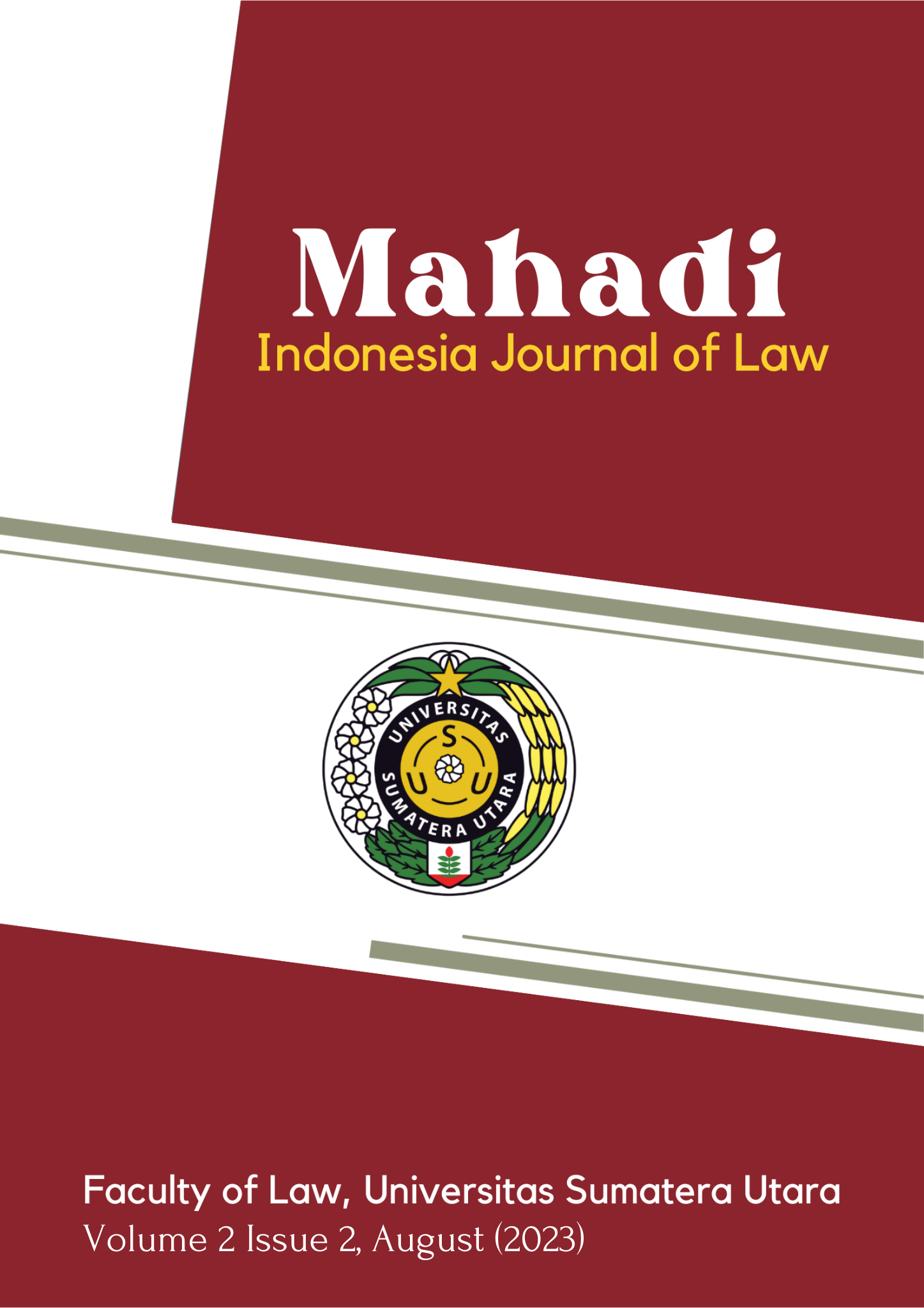National Interest and National Identity Affect The Behaviour Of Foreign Policy
DOI:
https://doi.org/10.32734/mah.v2i2.13363Keywords:
National Interest, National Identity, Behaviour of Foreign Policy.Abstract
There was a time when national identity influenced foreign policy, as in China, which has its Buddhist impermanence derived from its cultural identity. It has the identity of, and is derived from Japan's experience of the war in its own country. National interests on foreign policy actions are stronger than that of national identity. It targets countries without strong national identity clout, such as Western European countries such as Germany, and other countries such as the United States and Indonesia. The existence of strong national identities therefore only reinforces the influence of national interests influencing foreign policy, as has happened in China and Japan. Indonesia has Pancasila as its national identity. It has influenced its foreign policy by recognizing external threats. Moreover, Pancasila's national identity influences Indonesia's interior rather than its foreign policy. During the New Order era, China was known to be a communist threat to Indonesia, and Indonesia cut ties with China. In Europe and the United States, where societies have become multicultural societies, national interests influence foreign policy more than national identity. We should have more influence on our foreign policy to unite our national interests and multicultural societies.
Downloads
References
Björkdahl, A., 2002. Norms in international relations: Some conceptual and methodological reflections. Cambridge Review of International Affairs, 15(1), pp.9-23.
Burchill, S. (2005) The national interest in international relations theory (Vol. 38), Basingstoke: Palgrave Macmillan.
Catalinac, A. L. (2007) Identity theory and foreign policy: explaining Japan’s responses to the 1991 Gulf War and the 2003 US war in Iraq. Politics & Policy, 35(1), 58-100.
Chotimah, H.C. 2016. National Identity and International Norm as Indonesia’s Political Consideration In Response with Actions and Network of Global Terrorism. Politica Vol. 7 No. 2 November 2016
Clarke, M. and White, B. (1981) An Introduction to foreign policy analysis: the foreign policy system, California: GW & A. Hesketh.
Clunan, A.L. (2009) The Social Construction of Russia’s Resurgence: Aspress irations, Identity, and Security Interest. Baltimore, Maryland: The Johns Hopkins University Press. Ch.1 & 2.
Dugis, V. (2015) Level of Analysis: Culture and National Identity.
Ehrlich, Paul R. dan Jianguo Liu, “Some Roots of Terrorismâ€, Population and Environment 24, No 2, 2002. Finnemore, Martha dan Sikkink, Kathryn, “International norm dynamic and Political changeâ€, International Organization 52, 4,
Frankel, J. (1970) National Interest, London: Pall Mall Press.
Ganjar Widhiyoga; Setyasih Harini. (2019). Identitas Politik Luar Negeri Indonesia di Masa Reformasi (1999-2014). Research Fair Unisri, 3(1), 568.
Gelar Nanggala W.S.P. 2018. Cultural Diplomacy In Supporting The National Interest And National Defense: The Study Of Indonesia Arts And Culture Scholarship Program By The Ministry Of Foreign Affairs Of Indonesia. Jurnal Diplomasi Pertahanan | Desember 2018, Volume 4, Nomor 3
Hill, C. (2013) The national interest in question: Foreign policy in multicultural societies. OUP Oxford.
Hill, C. and Wallace, W., 2013. Introduction: actors and actions. In The actors in Europe's foreign policy (pp. 1-16). Routledge.
Li dan Karakowsky. (2001). “Do We see eyeto-eye? Implication of Cultural Differences for Cross-Cultural Management Research and Practiceâ€.The Journal of Psychology
Lynch, A.C., 2001. The realism of Russia's foreign policy. Europe-Asia Studies, 53(1), pp.7-31.
Mila, Nasihatul, Fatma Vida, dan Depict Pristine Adi. Sejarah Perkembangan Politik Luar Negeri Indonesia Masa Pasca Reformasi. Dalam Jurnal Pendidikan PKN Pancasila dan Kewarganegaraan Vol. I No. 2 November 2020.
Moravcsik, A. (1997). Taking preferences seriously: A liberal theory of international politics. International Organization, 51(4), 513–553. https://doi.org/10.1162/002081897550447
Muzakki, Fadlan. (2017). Theory, Practice, and Analysis of Indonesia’s Foreign Policy. Dalam Jurnal Translitera Edisi 5/2017.
Nye, J. (2008). Public Diplomacy and Soft Power. SAGE Journals
Nye, Joseph S (Jr). (1999). Redefining the National Interest. Dalam Foreign Affairs, Vol. 78, No. 4 (Jul. - Aug., 1999),
Pham, J.P. (2008) What Is in the National Interest? Hans Morgenthau's Realist Vision and American Foreign Policy, American Foreign Policy Interests, 30(5), pp.256-265.
Rice, C. (2008) Rethinking the national interest: American realism for a new world. Foreign Affairs, 2-26.
Smith, A.D. (1991) National Identity. Nevada: University of Nevada Press.
Smith, S., Hadfield, A., & Dunne, T. (2012) Foreign policy: theories, actors, cases. Oxford University Press.
Sukma, Rizal . (1995). The Evolution of Indonesia's Foreign Policy: An Indonesian View. Dalam Asian Survey, Vol. 35, No. 3 (Mar., 1995). University of California Press. Umar, Harun & Irma Indrayani. (2020). State Political Behavior: (Foreign And Domestic Policy, Diplomacy And Cooperation, International Political Dynamics). Dalam Journal of Social Political Sciences (JSPS), Vol. 1, No. 2, May, 2020.
Tow, W. T. (2001) Asia-Pacific strategic relations: Seeking convergent security. Cambridge University Press.
Trubowitz, P. (1998) Defining the national interest: conflict and change in American foreign policy, Chicago: University of Chicago Press.
Utarti, H. M. (2000) The wise eagle?: Indonesia's foreign policy and the politics of national identity (No. 3956). University of Hawaii.
Wijayanti, A. 2022. Pengaruh Kepentingan Nasional Dalam Pelaksanaan Politik Luar Negeri Bebas Aktif. Kybernology : Journal of G
Downloads
Published
How to Cite
Issue
Section
License
Copyright (c) 2023 Syaravina Lubis

This work is licensed under a Creative Commons Attribution-ShareAlike 4.0 International License.











